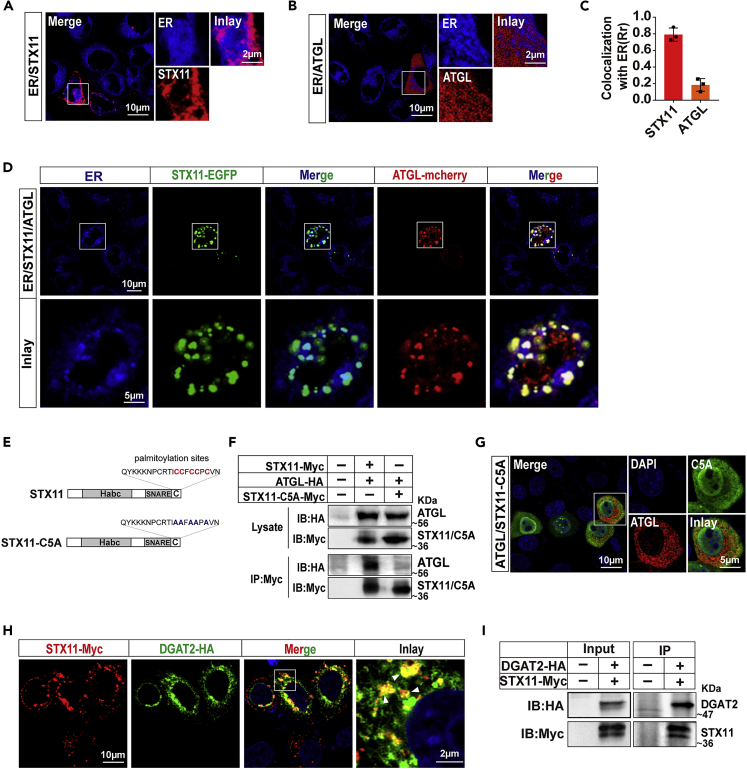Figure 6.
Co-localization of STX11 with ATGL at the ER
(A) STX11 localizes to the ER. THLE-2 cells were transfected with STX11-mcherry, and the ER was stained with ER-Tracker Blue-White DPX followed by confocal microscopic analysis.
(B) No significant co-localization of ATGL with the ER. THLE-2 cells were transfected with ATGL-mcherry and then the ER were stained with ER-Tracker Blue-White DPX followed by confocal microscopic analysis.
(C) Analysis of STX11 and ATGL co-localization with ER is shown as Rr.
(D) Analysis using confocal microscopy demonstrates that co-localization of STX11 with ATGL at the ER. STX11-EGFP and ATGL-mcherry were co-transfected into THLE-2 cells and ER were stained with ER-Tracker Blue-White DPX.
(E) Schematic of the amino acid mutation in the C-terminal region of STX11.
(F) No co-localization of STX11-C5A and ATGL. HEK293T cells were co-transfected with ATGL-HA together with STX11-Myc or STX11-C5A-Myc and were immunoprecipitated with anti-Myc antibodies. STX11 and ATGL proteins in immunoprecipitated lysates were detected by immunoblotting with Myc and HA antibodies.
(G) HeLa cells were co-transfected with STX11-C5A-Myc and ATGL-HA. STX11-C5A-Myc protein immunofluorescence staining was performed using anti-Myc (green) and ATGL-HA proteins were stained with anti-HA (red) antibodies.
(H) Co-localization of STX11 and DGAT2 in cells (white arrows). HeLa cells were co-transfected with STX11-Myc and DGAT2-HA. Immunofluorescence staining with anti-HA and anti-Myc antibodies was performed to reveal co-localization between DGAT2-HA (green) and STX11-Myc (red).
(I) STX11 and DGAT2 have a direct physical interaction. STX11-Myc proteins were immunoprecipitated with anti-Myc antibodies. STX11 and DGAT2 proteins in immunoprecipitates and lysates were detected by immunoblotting using Myc and HA antibodies. Data are shown as mean ± SEM (n = 3).

